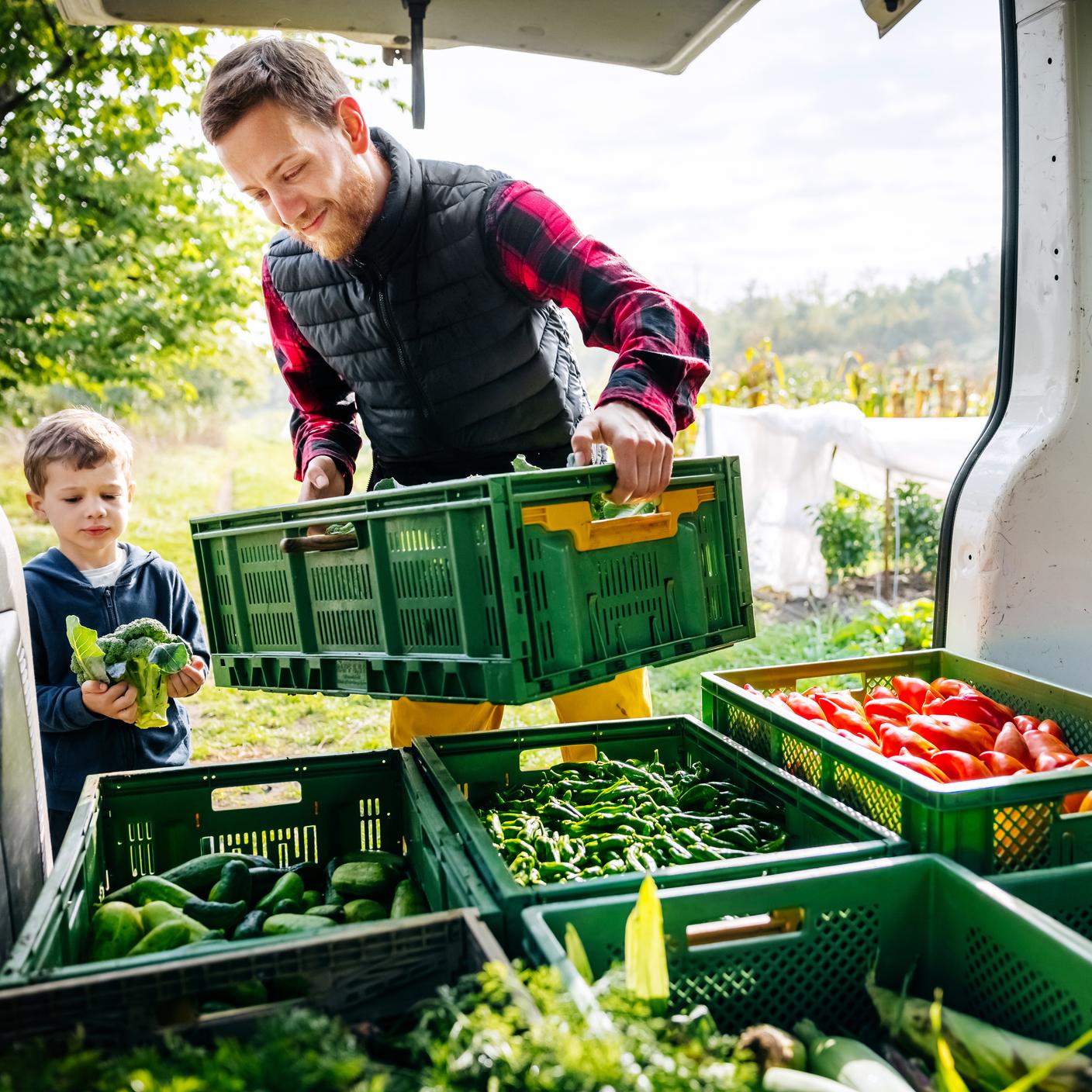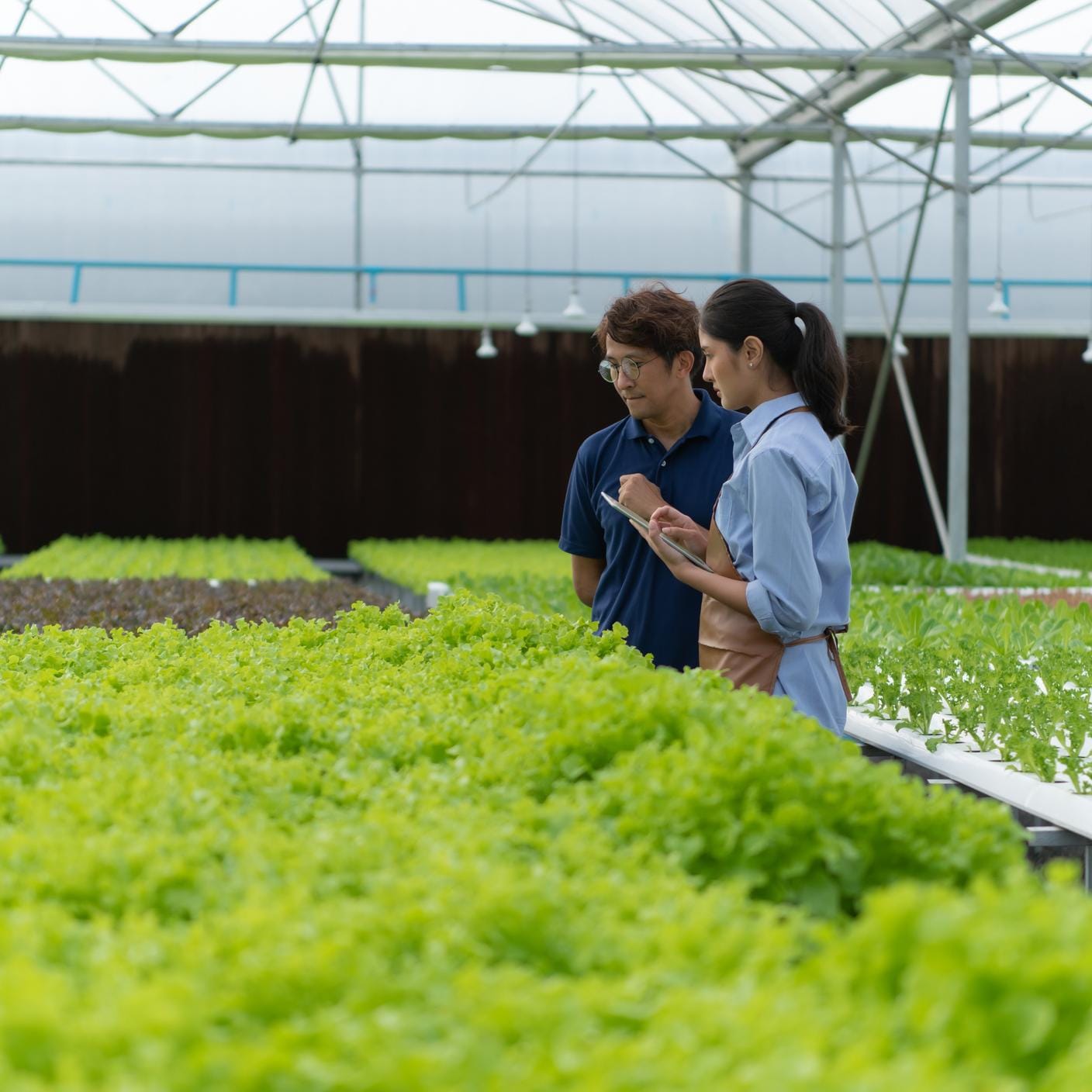Consumer, Retail & Food Trends 2024: Key Shifts and What’s Next for 2025
The food and retail industries are continually evolving. Over the past 12 months, we have witnessed an incredible amount of inspiring innovation. There have also been memorable moments and important learnings. These experiences will help guide and shape the sectors throughout 2025 and beyond.
Three key areas driving progress towards a fairer, more sustainable world are AI, the age-diverse workforce, and water security, all of which have seen rapid development over the past year.
In this article, our Global Managing Director – Consumer Retail and Food, Todd Redwood, shares some of his standout developments of 2024.
AI opportunities embraced
This year has been the first we’ve genuinely seen a more widespread adoption of AI in consumer, retail and food. With people working in these sectors becoming more comfortable with AI and technology helping them in their roles.
Fear has increasingly been replaced by openness, and concern over losing jobs has been replaced by a cautious optimism about how jobs can be made better and more rewarding.
Research shows that business use of generative AI has almost doubled in the past year, with 65% of businesses across all industries using AI. While our own research shows 47% of businesses have an AI strategy. And, over the past year, we’ve seen many examples of AI being used as a force for good within food and retail, helping businesses operate more efficiently and effectively, while aiding sustainability, too.
AI shaping the future of packaging
This year, Amazon launched ‘Project PI’, which uses generative AI and computer vision to scan parcels that are returned due to damaged packaging. By doing this, it can assess the type of packaging, the products contained and the damage caused and make recommendations on different packaging options. This has the ability to reduce waste as well as reduce the carbon footprint caused by those returns.
AI also has huge potential in helping develop food packaging that delivers far more than its primary purpose of keeping food fresh. Technology such as BlakBear, for example, enables packaging to display a dynamic use-by date on food by measuring spoilage gases inside food packaging.
In terms of helping food loss and waste, innovation like this is a small taste of what AI can offer – which is an exciting prospect.
Use-by dates on shelves
Another role technology and AI play that emerged more fully this year – and is set to continue developing in 2025 – is directly helping food loss and waste. Technology that monitors use-by dates and reduces prices accordingly are being trialled in various locations including the US. By managing those use-by dates and increasing the probability of that food being purchased and consumed, AI is directly increasing food consumption, in addition to the direct business benefits to be enjoyed, too. Over the coming months, I envisage more and more retailers exploring this technology – and consumers increasingly demanding it, too.
Unattended retail continues to grow
AI and other technologies are also enabling food retail to serve areas that otherwise could be challenging from a business perspective. In Europe, for example, Spar’s unattended ‘Spar Go24’ stores use cameras, sensors and smartphones to provide customers with 24/7 access to food and household goods.
Self-service at supermarkets can be divisive. However, it’s likely that we will see this tech-enabled trend continue to grow in 2025. Smart scales that identify food types and AI technologies to reduce shoplifting are expected to become even more prominent.
AI helping deliver better customer experiences
The notion of AI helping make jobs and businesses better, rather than simply taking jobs away from people, is showcased by Starbucks. It’s a business that is always at the forefront of practically using technology and is increasingly using AI to lift everything it does.
Predictive analytics help manage inventory and enable more informed ordering. This assists in reducing food waste, among other benefits. Personalized AI-driven customer recommendations are becoming more common. Social media monitoring helps businesses understand customer sentiment and feedback better. These tools provide companies with far more information and as a result, businesses can deliver their very best to customers.
Businesses prioritizing age-diverse workforce
While AI is becoming more and more influential, businesses still rely on people – and 2024 has seen significant changes in the ways organisations are creating environments in which people can flourish and succeed.
There are a number of opportunities for businesses to take advantage of here, and throughout 2024 we’ve seen the way of work becoming increasingly diverse.
While the pandemic created a work-from-home culture, businesses are now creating working arrangements that work for them and their people.
More than one in nine people are working past their 65th birthday in the UK – double the proportion in 2000 – meaning there are age considerations here. The ‘war on talent’ continues, ensuring companies have to prioritize the recruitment and retention of quality staff. BSI research shows that 76% of women globally feel that greater flexibility would help them remain in the workplace longer. This underlines the importance of making sure the whole work environment is being designed to get the best out of individuals.
Addressing a taboo
Throughout 2024, we’ve seen more and more businesses being proactive in creating workplaces that help women going through menopause, as well as menstruation and menstrual health.
It’s a huge topic, affecting 11% of the working population – and one that until recent years has largely been ignored. Given menopause is estimated to currently cost the UK economy 14 million working days each year, there’s a big opportunity here.
Fortunately, more progressive businesses have been willing to tackle this subject, and have created policies, procedures and general ways of working to help ensure greater understanding.
Here at BSI, for example, we’ve adopted many practices, including access to Maven, the world's largest virtual clinic supporting women's health, available 24/7 and in 35 languages.
To help businesses do this in the right way, we launched our new Workplace Standard (BS 30416). Providing a framework and guidance for workspace adjustments and strategies to help retain experienced and talented employees.
Creating safer environments for retail staff
We’ve also seen workplaces increasingly look after their staff this year – which ties in with the need to create environments in which people feel safe in order for them to flourish. This year, we’ve seen authorities getting tough on people who compromise that, which is a welcome development.
Retail workers, for example, are subject to physical risks every day, and retailers are increasingly introducing measures to help protect their employees.
Legislation was introduced in the UK this year to make it a standalone criminal offence to assault a retail worker. While in New South Wales in Australia, new legislation introduced a maximum penalty of four years imprisonment for offences against a retail worker, including assault and intimidation, and six years for actual bodily harm.
Progress made with environmental challenges – but work still needs to be done
The environmental challenges businesses face are ever-present, and this year has seen more and more organizations taking decisive action to reduce their emissions and conserve water, too.
It’s a huge challenge, but with the right frameworks and guidance in place, it’s one that can deliver great benefits if it’s tackled in the right way.
Here are some of the trends that have really evolved this year.
Businesses owning their part of the problem – and the solution
It’s no secret that businesses in all sectors need to do more when it comes to sustainability. This year I’ve been enthused by the number of brands who are taking action to not just acknowledge this, but own it, too.
Take Diesel, for example. Earlier this year, the brand launched a documentary series that explores the lifecycle of its denim, and showcases its commitment to creating lower-impact denim.
This isn’t greenwashing – it’s sharing a sustainability story in a way its customers will find engaging, and it’s backed up with proof. For example, its use of organic, recycled or regenerative cotton has increased from 3% to 50% over the past three years, and that’s among the stories it’s telling, in an innovative, engaging way.
Brands taking ownership of their story – and sharing it well – has been a big development this year, and a welcome one at that.
Brands embracing the circular economy
Initiatives that contribute to the circular economy have continued to grow this year, and brands are increasingly becoming involved in how people reuse or recycle their products after they’ve finished with them.
Nike, for example, now accepts any brand of sporting footwear and recycles them, while the number of social media posts in the UK promoting ‘slow fashion’ has increased by 29%. Underlining that the circular economy is gaining major traction.
Increasing transparency of the supply chain
This year, we’ve also seen strides made towards greater transparency within supply chains and a far greater appetite for brands to look beyond their tier-one suppliers and delve into their tier-two, three and four suppliers.
This isn’t a simple thing to manage, as supply chains can be dark and deep. But ultimately, a human rights or animal welfare violation is going to rise to the top, and plausible deniability won’t fly.
By having the right frameworks and standards in place, brands are coming to grips with this, and that willingness to do so has been a highlight this year.
Looking ahead to 2025
So, what does 2025 hold? Hopefully, more of the same. A continuation of the good work organisations have undertaken in 2024, with a greater appetite across the board to ultimately enable better businesses and a better world.
Technology
AI will continue to develop at pace – you don’t need a crystal ball to see that. Just as we’ve seen widespread acceptance this year, I believe next year we’ll increasingly see AI being a fundamental part of a business’s foundation.
That brings its own challenges and opportunities, of course, and the ethical and responsible use of AI has got to anchor any implementation. AI has the power to achieve tremendous good; however, the opposite is also true.
Collectively, it’s important to acknowledge this and do things in the right way for long-term benefit, not short-term gain. While in 2024, 47% of businesses have an AI strategy, I expect this to increase significantly by the end of 2025.
Innovation
It will be aligned to some of the common challenges we’ve talked about – reducing food loss and waste, removing inefficient business processes, optimising any and every aspect of an organisation, and creating workplaces in which people can perform increasingly meaningful work.
Practical applications that we’ve never considered will emerge, but all will be guided by a business benefit – and guided by a strategic, purposeful framework.
This time next year, we’ll no doubt be reflecting on a whole host of developments and innovations that have continued to shape and evolve the industry.
Some of those developments will be a continuation and evolution of things that have been building over recent times – others, however, may not have even yet crossed our minds.
Here at BSI, we’re committed to supporting organizations as they assess and embrace innovation in a responsible, ethical and strategic way – meeting new regulations, enhancing resilience, and fostering positive impact.
The key to achieving long-term success in such a dynamic, ever-changing space is having the right frameworks and standards in place. Ensuring the future we create is a place in which we can all thrive.






